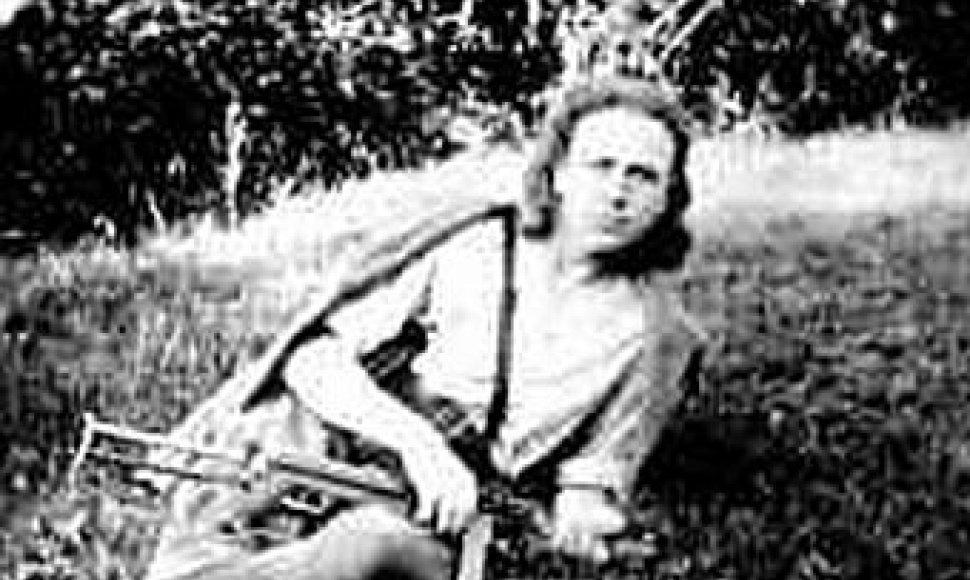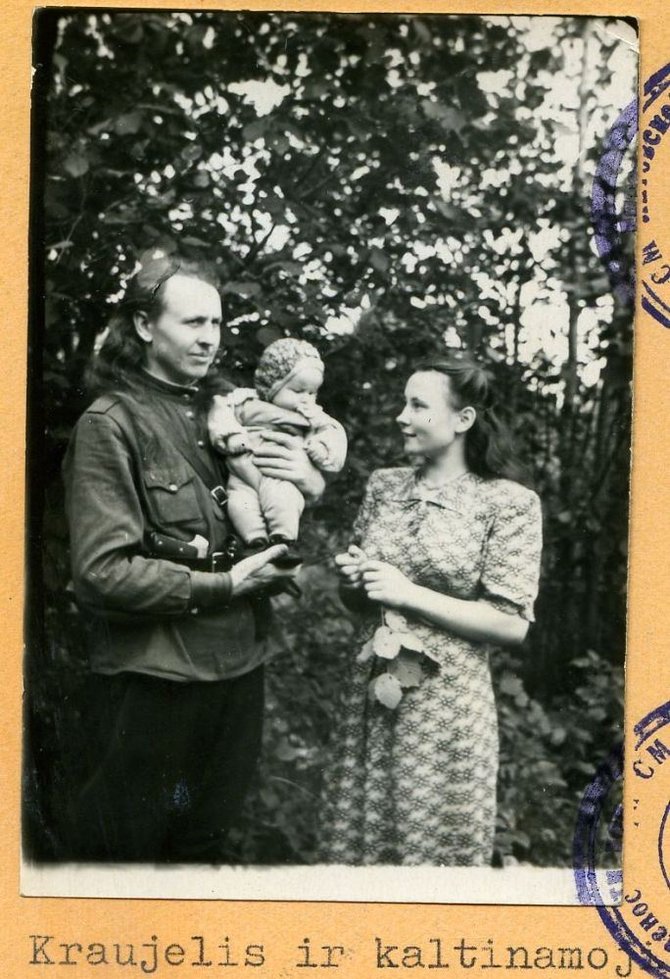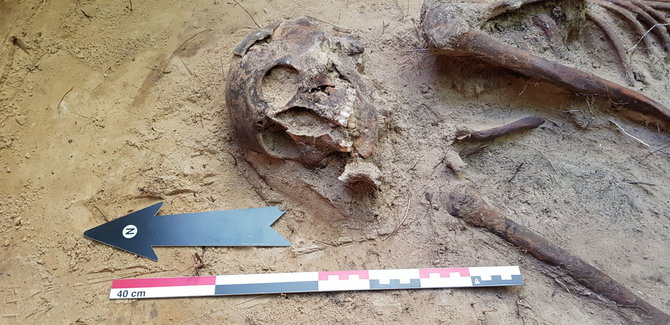According to the Director of the Center, Birutė Burauskaitė, the Center's historians have gathered a substantial amount of information and hope to share it with the public.
The discovery of the remains of the last fighting partisan once again reminds us not only of the heroic struggle for post-war resistance but also of other pages of history. Five years ago, Jurgis Jurgelis and Aloyzas Sakalas, signatories of the March 11 Act, appealed for the withdrawal of the status of Volunteer Soldier for A. Kraujelis-Siaubūnas, which was awarded to him on December 22, 1997.
In 2014, in a Panevėžys District court case, the first Lithuanian Minister of the Interior, Marijonas Misiukonis, 74 years old, tried to prove himself innocent in a trial of genocide, claiming that the last Lithuanian partisan, A.Kraujelis-Siaubūnas, of whom he was accused of killing, was not a freedom fighter but a criminal offender.
At that time, the LGGRTC conducted a re-examination of the Lithuanian SSR KGB incriminations against the partisan A. Kraujelis and found that there is no evidence that Kraujelis killed innocent residents, and that there is no factual and legal basis for abolishing his legal status (postmortem). The abridged conclusions of the LGGRTC can be read here (Text is in Lithuanian).
The opportunity to revive the study
As per B. Burauskaitė, there have been no similar legal challenges in the past five years, but the center's historians have gathered a substantial amount of related information. And now is an excellent opportunity to review the case again.
"This fact, that the remains have been discovered will give our historians an impetus to review the collected information again. There is very detailed information provided by Gintaras Šidlauskas on the number and types of killings that were attributed to A. Kraujelis, which is not sufficient proof for the Kraujelis case, where four volumes of material were collected, nor for the case of the former ex-leader of the group, Mykolas Urbonas-Liepas; there are clear objections throughout. The Center does not have the possibility of conducting legal action; the prosecutors should perform a careful analysis. Maybe we will approach the court again, present all the material that our historians have researched, and try to initiate an investigation.” states B. Burauskaitė.
The LGGRTC director is convinced that the controversial statements of individual members of society, as she called the statements, will still be, "to put it mildly”, to reproach A. Kraujelis that civilians have suffered, etc.".
According to B. Burauskaitė, only the killing of the Komsomol Juzė Šidlauskaitė is confirmed by the facts. "And everything else is dragged along. The commander of the squad, M. Urbonas, who was later convicted and shot, attempted to deflect the facts of many of his actions to Kraujelis, although Kraujelis worked as a liaison at the time. The role of Urbanas is very negative, especially about Kraujelis, and I think that it is necessary to initiate this investigation and provide the public with all the material,” said the Director of the Center.
Recalling that the Supreme Court of Lithuania (LAT), having investigated a sensitive cassation case concerning the history of Lithuanian partisans, found that, on the basis of evidence gathered by the courts and thoroughly assessed by the courts, there is no basis for recognizing the actions of Marijonas Misiukonis as having the characteristics of genocide.
Another KGB employee is mentioned
The LGGRTC historian Dalius Žygelis recalled that during this process, M. Misiukonis told the family of A. Kraujelis that the remains of the partisan had been taken to Vilnius. At the time, the information seemed incredible, because the secret of the Orphan's Cemetery was unknown, but it turned out that M. Misiukonis did not lie.
D. Žygelis also mentioned another important personality, which he thought could have known exactly where Siaubūnas was buried: “The KGB employee Ričardas Vaigauskas, who took on the position of the Chief of the KGB Accounting Division that year. And the head of this department was responsible for special operations, i.e., executions, the security of the archives, and the selection and maintenance of the burial sites for those executed by the KGB. To our knowledge, R. Vaigauskas is alive today and was questioned by the Lithuanian special services in roughly 2008.
Despite having just released his memoirs, Vaigauskas confirmed to the special services that he did not remember and could not tell them anything. Surprisingly, that was enough for our services. He may fall under an article of the Criminal Code for concealing the crime and not reporting the crime. I hope there will be further questioning and that the Lithuanian State will not need to spend so much of its funding to find its heroes who gave their most precious asset - life - for the freedom of Lithuania.”
His family sought his remains from the very time of his death. Janina Šyvokienė-Kraujelytė, the sister of A. Kraujelis, said that she never stopped trying, but now it is nevertheless painful to realize how her brother was killed and buried.















